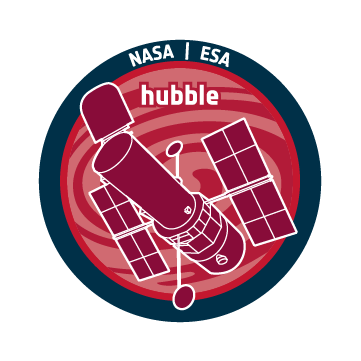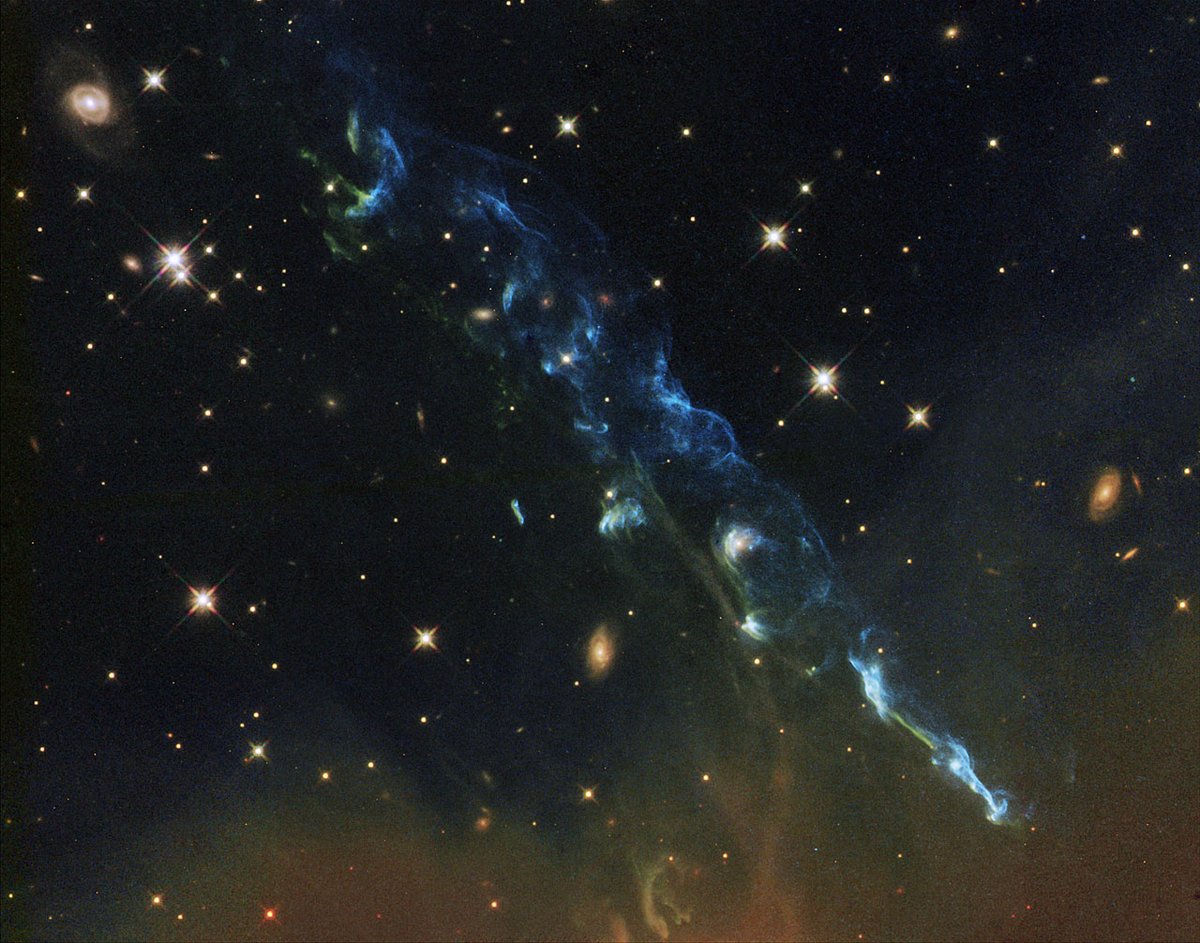#hubbletopimage search results
Hubble unmasks a ghost galaxy 👻 in this #HubbleTopImage Astronomers used Hubble to unmask the dim dwarf galaxy Leo IV, which is practically invisible, its stars virtually indistinguishable from the background. 1/3

Our #HubbleTopImage features a panoramic view of a star-forming region ⭐ 30 Doradus resides 170,000 light-years away in the Large Magellanic Cloud. No known star-forming region in our galaxy is as large or as prolific! Read more: ow.ly/oXxn50X8jnE

Our #HubbleTopImage digs up hidden treasure 💎 in the Large Magellanic Cloud! LHA 120-N 11, seen here, is a particularly bright star-forming region, consisting of several pockets of gas and star formation. 1/3
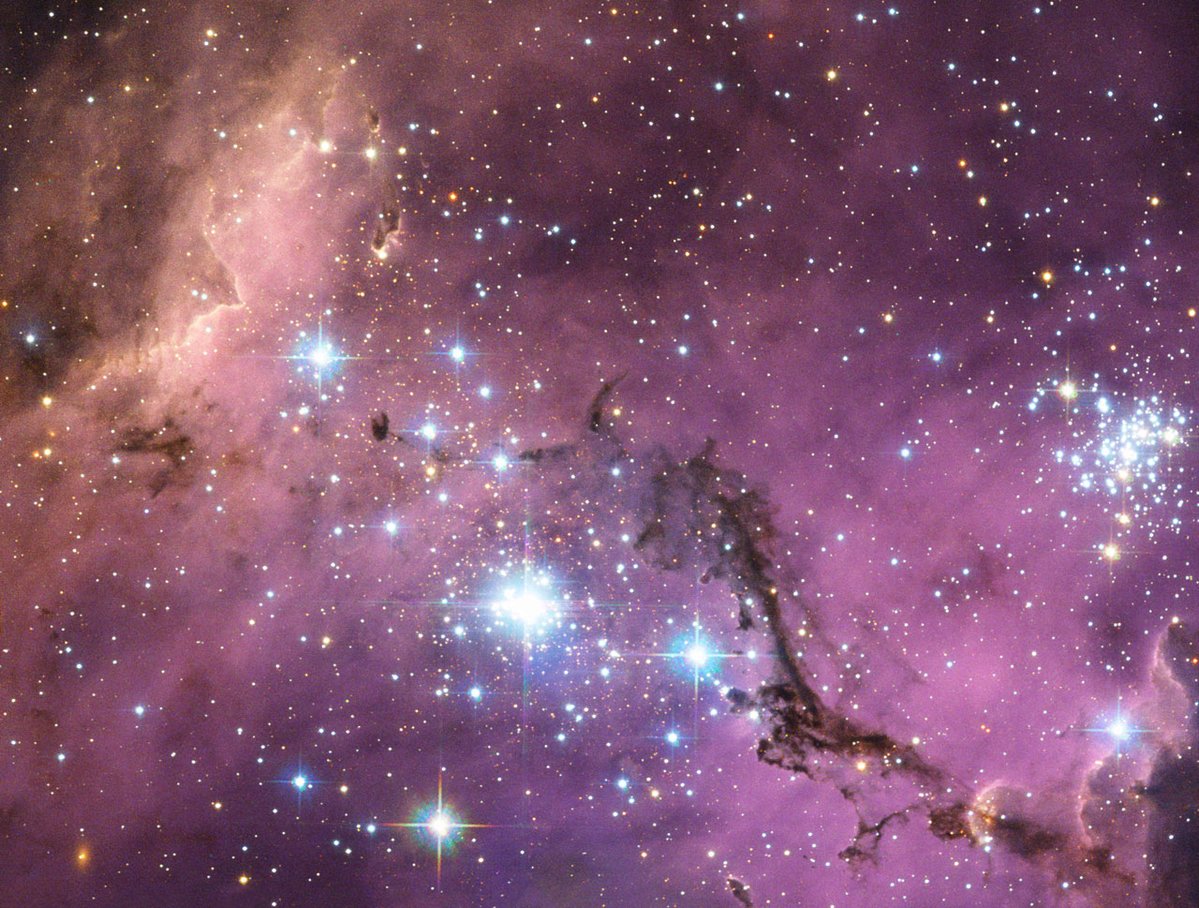
This #HubbleTopImage was once the deepest-ever view of the Universe! It was assembled from ten years of Hubble observations taken of a patch of sky within the original Hubble Ultra Deep Field. 1/3

Our #HubbleTopImage is a classic portrait of a barred spiral galaxy 🌌 Hubble’s image of NGC 1073 is, in many ways, the archetypal portrait of a barred spiral. However, there are a few quirks here… 1/3
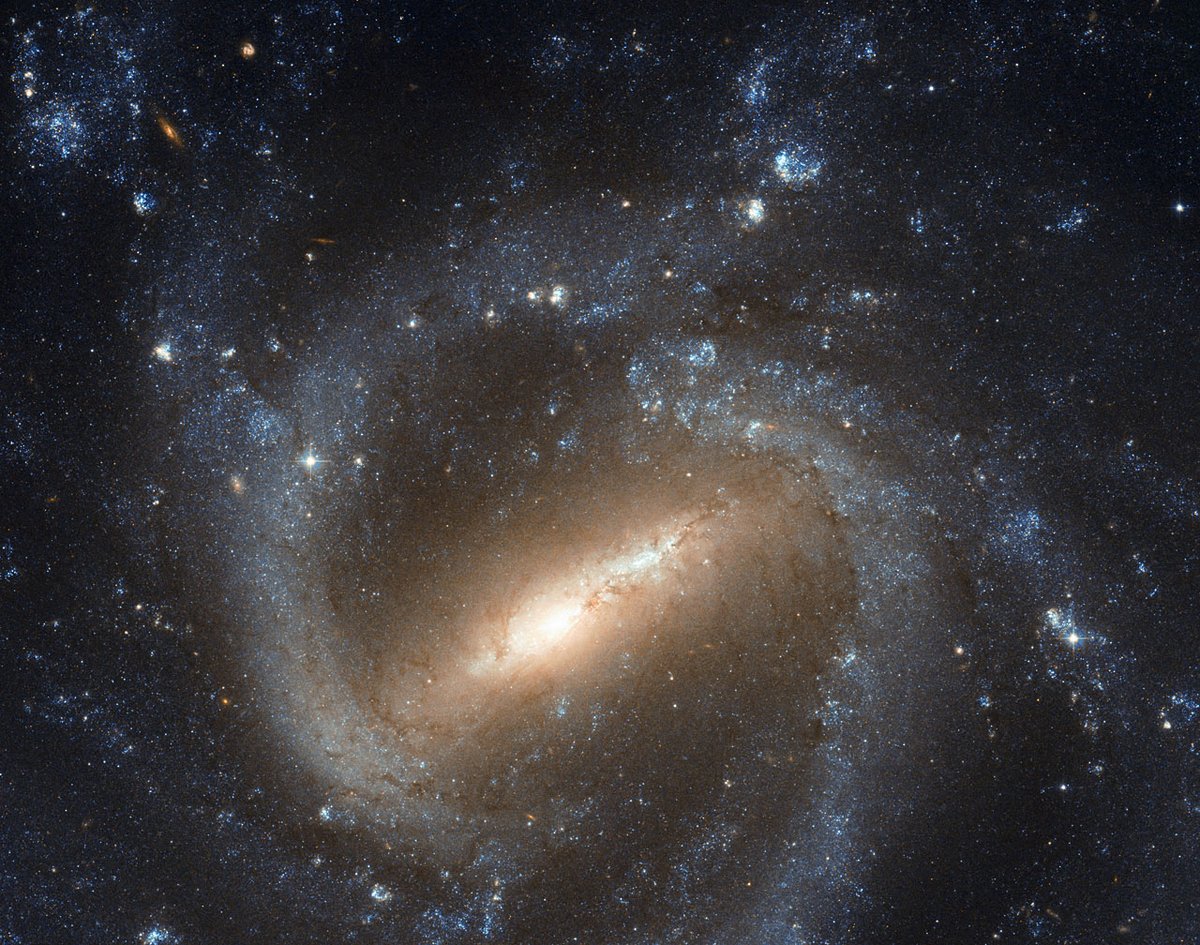
The Hubble Space Telescope has captured stunning images of Jupiter's auroras. #NASA #US #HubbleTopImage #Space #Amazing
Our #HubbleTopImage features a spiral galaxy with a secret 🤫 Located just over 20 million light-years away, Messier 106 is one of the nearest spiral galaxies to our own. Despite its typical appearance, it hides a secret at its centre… 1/3

Our #HubbleTopImage catches two galaxies in close encounter! This pair is known as Arp 142. When two galaxies stray too close, they begin to interact – in some cases they merge 🤝 in others, they are ripped apart. 1/2
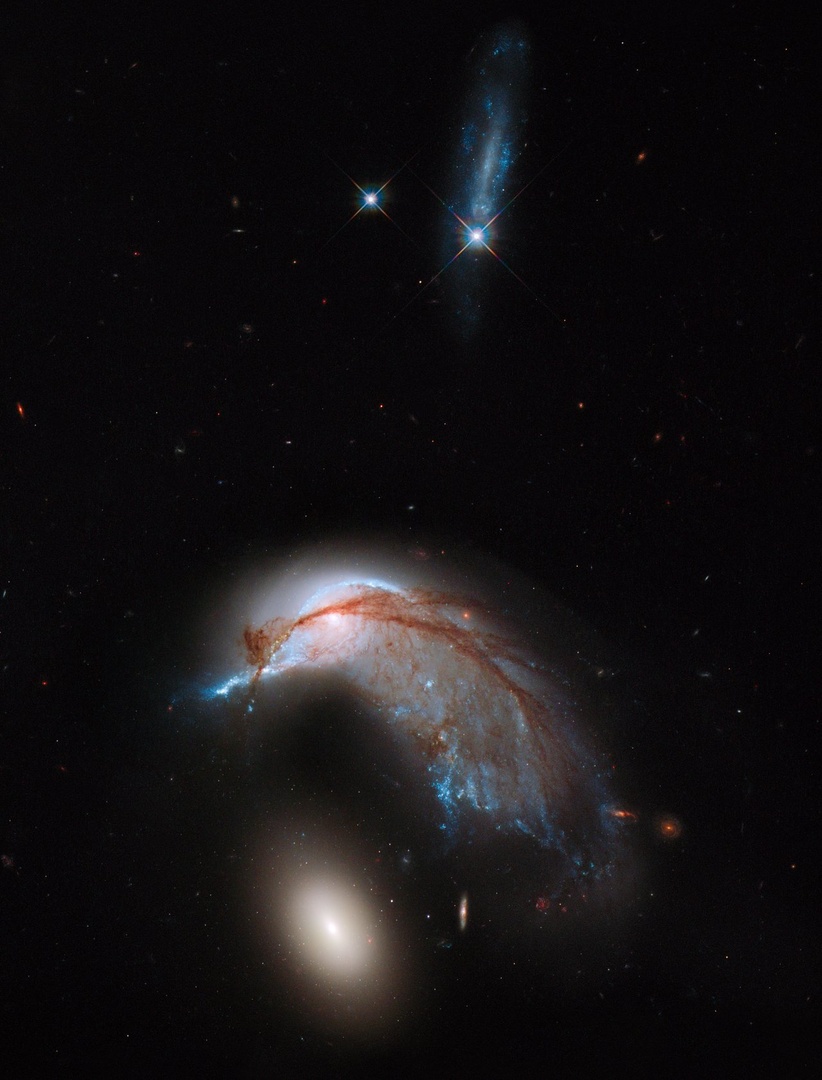
Our #HubbleTopImage features a spectacular light show! 🎆 RS Puppis is a type of variable star known as a Cepheid variable. They pulsate relatively slowly – this one varies in brightness by almost a factor of five every 40 or so days.
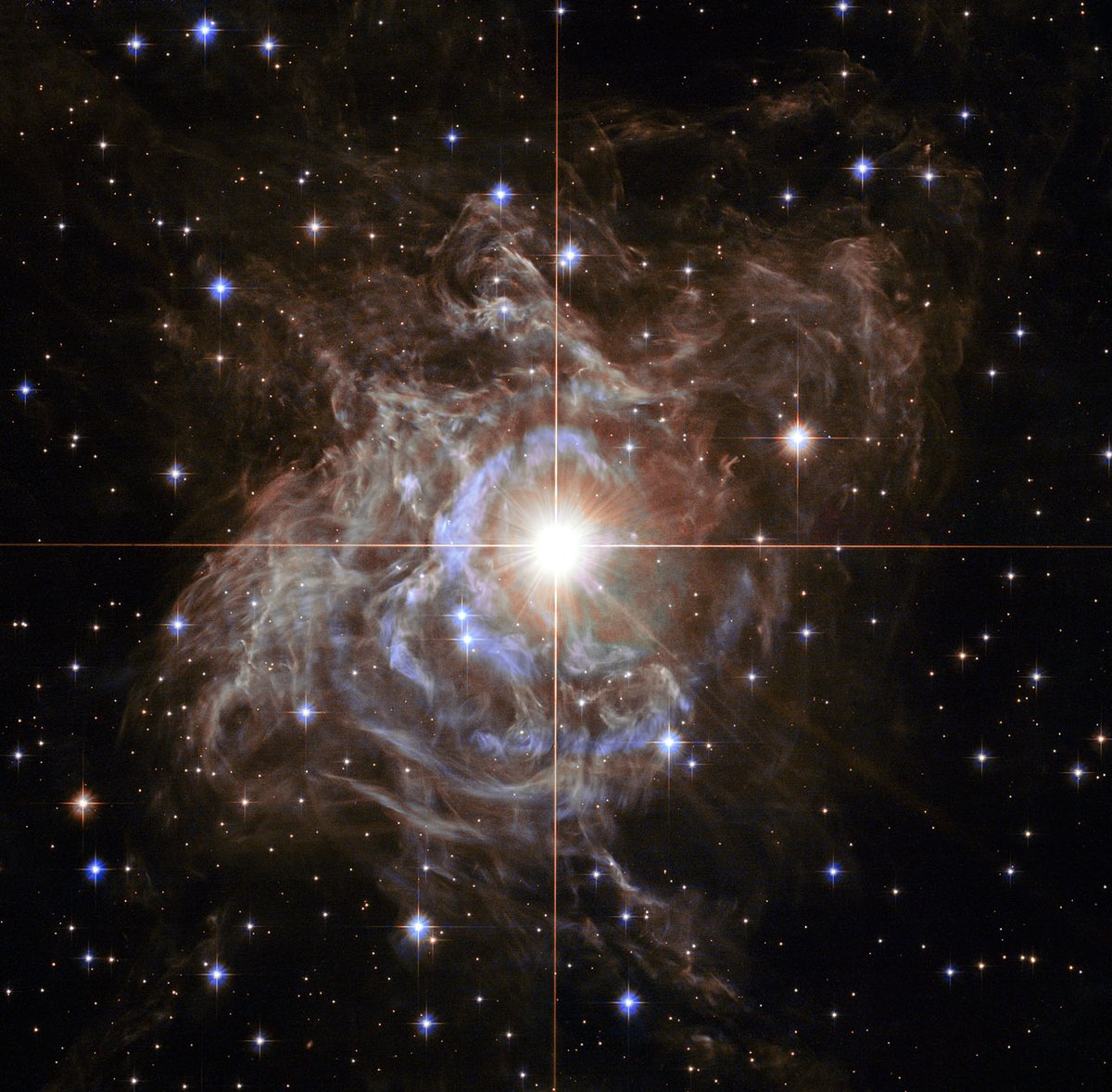
A cosmic celebrity takes centre stage in our #HubbleTopImage 🐴⭐ This image of the Horsehead Nebula, which was captured to celebrate Hubble’s 23rd year in orbit, shows the region in infrared light. 1/3

Our #HubbleTopImage captures the planetary nebula PN Hb 12! 🦋 Its butterfly-like structure formed as a Sun-like star approached the end of its life and puffed its outer layers into the surrounding space. 1/3

Our #HubbleTopImage showcases a multiwavelength observation of Jupiter, offering a distinctive panchromatic perspective that has provided insights into the altitude and distribution of the planet's haze and particles.⬇️

Our #HubbleTopImage features a star among galaxies! 🤩 Messier 77 is one of the most famous galaxies, with more papers written about it than many other galaxies put together! However, it has twice been the victim of mistaken identity… 1/3

Soft shells and strange star clusters appear in our #HubbleTopImage this week! The petal-like shells 🪷 of galaxy PGC 6240 were captured in intricate detail by Hubble, set against a sky full of distant background galaxies. 1/3

Our #HubbleTopImage revisits the Ring Nebula! From Earth’s perspective, the nebula appears like a simple elliptical shape. Observations combining ground-based data and Hubble data, however, revealed that it is more like a doughnut 🍩 1/3

Our #HubbleTopImage flashes back to an asteroid and its curious comet-like tails! ☄️ P/2013 P5 was first imaged by Hubble on 10 September 2013. When imaged again 13 days later, it seemed as though the entire structure had swung around. 1/3

Our #HubbleTopImage features a distant gravitational lens! 🔍 The circle of light in this image is formed by the light of a distant starbursting dwarf galaxy being projected and magnified by the gravity of a nearer galaxy. 1/3
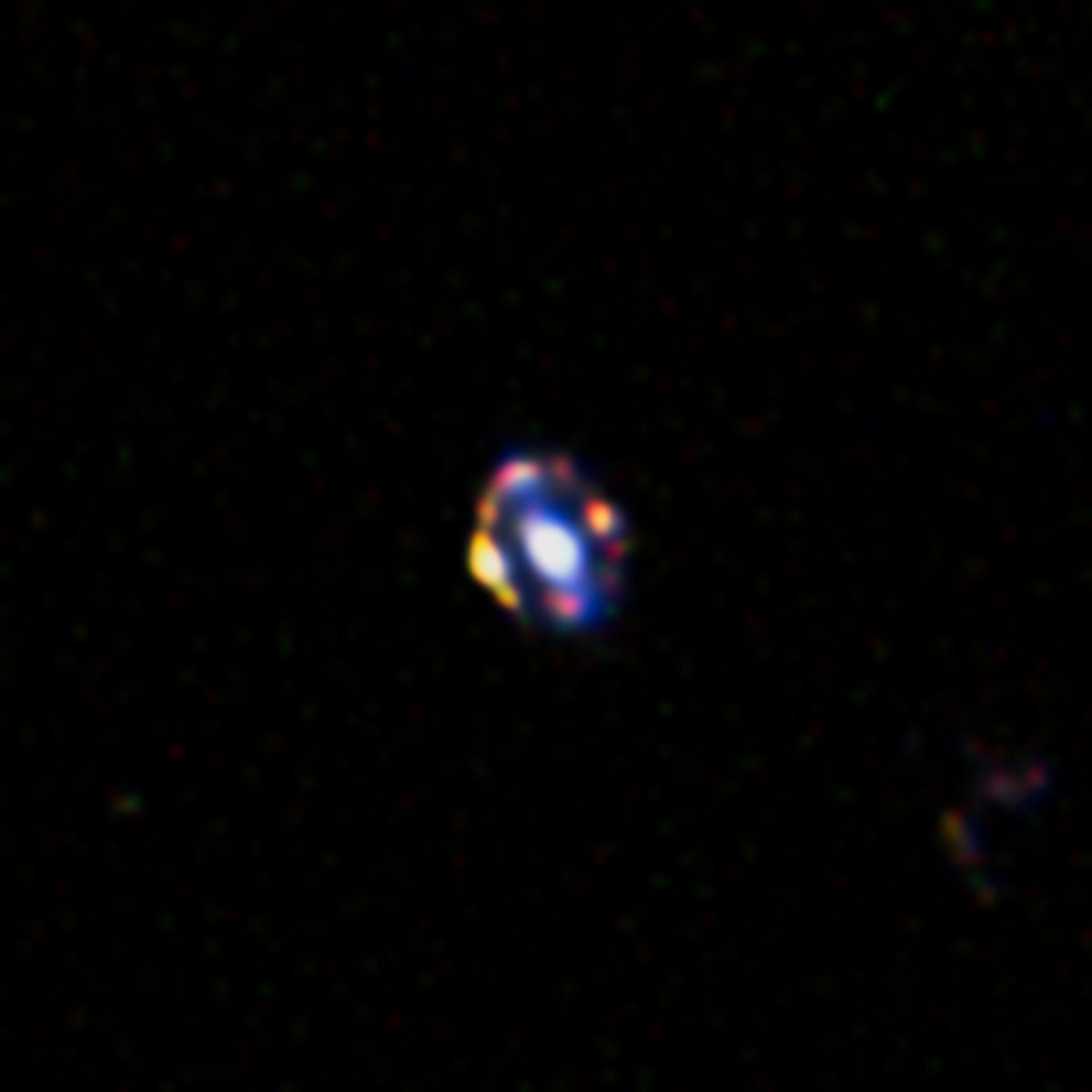
Our #HubbleTopImage features the massive galaxy cluster Abell 1689! Abell 1689 acts like a cosmic lens 🔍 magnifying the light from objects lying behind it and making it possible for astronomers to explore incredibly distant regions of space. 1/3

Hubble unmasks a ghost galaxy 👻 in this #HubbleTopImage Astronomers used Hubble to unmask the dim dwarf galaxy Leo IV, which is practically invisible, its stars virtually indistinguishable from the background. 1/3

Our #HubbleTopImage digs up hidden treasure 💎 in the Large Magellanic Cloud! LHA 120-N 11, seen here, is a particularly bright star-forming region, consisting of several pockets of gas and star formation. 1/3

Our #HubbleTopImage features a panoramic view of a star-forming region ⭐ 30 Doradus resides 170,000 light-years away in the Large Magellanic Cloud. No known star-forming region in our galaxy is as large or as prolific! Read more: ow.ly/oXxn50X8jnE

Hubble unmasks a ghost galaxy 👻 in this #HubbleTopImage Astronomers used Hubble to unmask the dim dwarf galaxy Leo IV, which is practically invisible, its stars virtually indistinguishable from the background. 1/3

This #HubbleTopImage was once the deepest-ever view of the Universe! It was assembled from ten years of Hubble observations taken of a patch of sky within the original Hubble Ultra Deep Field. 1/3

Our #HubbleTopImage is a classic portrait of a barred spiral galaxy 🌌 Hubble’s image of NGC 1073 is, in many ways, the archetypal portrait of a barred spiral. However, there are a few quirks here… 1/3

Our #HubbleTopImage features a distant gravitational lens! 🔍 The circle of light in this image is formed by the light of a distant starbursting dwarf galaxy being projected and magnified by the gravity of a nearer galaxy. 1/3

Our #HubbleTopImage features strobe flashes from a young star 🌟 Every 25.34 days, the protostar LRLL 54361 unleashes a burst of light – possibly due to the interactions between two newly formed stars that are gravitationally bound. 1/3

Our #HubbleTopImage revisits the Ring Nebula! From Earth’s perspective, the nebula appears like a simple elliptical shape. Observations combining ground-based data and Hubble data, however, revealed that it is more like a doughnut 🍩 1/3

A cosmic celebrity takes centre stage in our #HubbleTopImage 🐴⭐ This image of the Horsehead Nebula, which was captured to celebrate Hubble’s 23rd year in orbit, shows the region in infrared light. 1/3

Our #HubbleTopImage captures the planetary nebula PN Hb 12! 🦋 Its butterfly-like structure formed as a Sun-like star approached the end of its life and puffed its outer layers into the surrounding space. 1/3

Our #HubbleTopImage catches two galaxies in close encounter! This pair is known as Arp 142. When two galaxies stray too close, they begin to interact – in some cases they merge 🤝 in others, they are ripped apart. 1/2

Our #HubbleTopImage features a spiral galaxy with a secret 🤫 Located just over 20 million light-years away, Messier 106 is one of the nearest spiral galaxies to our own. Despite its typical appearance, it hides a secret at its centre… 1/3

Our #HubbleTopImage features a spectacular light show! 🎆 RS Puppis is a type of variable star known as a Cepheid variable. They pulsate relatively slowly – this one varies in brightness by almost a factor of five every 40 or so days.

Our #HubbleTopImage features a star among galaxies! 🤩 Messier 77 is one of the most famous galaxies, with more papers written about it than many other galaxies put together! However, it has twice been the victim of mistaken identity… 1/3

Soft shells and strange star clusters appear in our #HubbleTopImage this week! The petal-like shells 🪷 of galaxy PGC 6240 were captured in intricate detail by Hubble, set against a sky full of distant background galaxies. 1/3

Our #HubbleTopImage flashes back to an asteroid and its curious comet-like tails! ☄️ P/2013 P5 was first imaged by Hubble on 10 September 2013. When imaged again 13 days later, it seemed as though the entire structure had swung around. 1/3

Our #HubbleTopImage features the massive galaxy cluster Abell 1689! Abell 1689 acts like a cosmic lens 🔍 magnifying the light from objects lying behind it and making it possible for astronomers to explore incredibly distant regions of space. 1/3

Our #HubbleTopImage takes you back to when astronomers found evidence of unexpected black holes! 🕳️ More black holes were found in the early Universe than previously reported – and many of them more massive than was thought possible. 1/3

Something went wrong.
Something went wrong.
United States Trends
- 1. Packers 30.3K posts
- 2. Colts 26.1K posts
- 3. Tee Higgins 3,415 posts
- 4. FanDuel 26.5K posts
- 5. Caleb Williams 3,190 posts
- 6. #Bears 4,601 posts
- 7. Cairo Santos 1,434 posts
- 8. Theo Johnson 1,763 posts
- 9. JJ McCarthy 3,602 posts
- 10. Lions 48.2K posts
- 11. #Skol 2,398 posts
- 12. Daniel Jones 3,580 posts
- 13. #HereWeGo 3,756 posts
- 14. Texans 22.3K posts
- 15. #NYGiants 2,753 posts
- 16. Ben Johnson 1,955 posts
- 17. Drake London 2,152 posts
- 18. Mac Jones 2,741 posts
- 19. #Steelers 5,255 posts
- 20. McManus 1,369 posts

